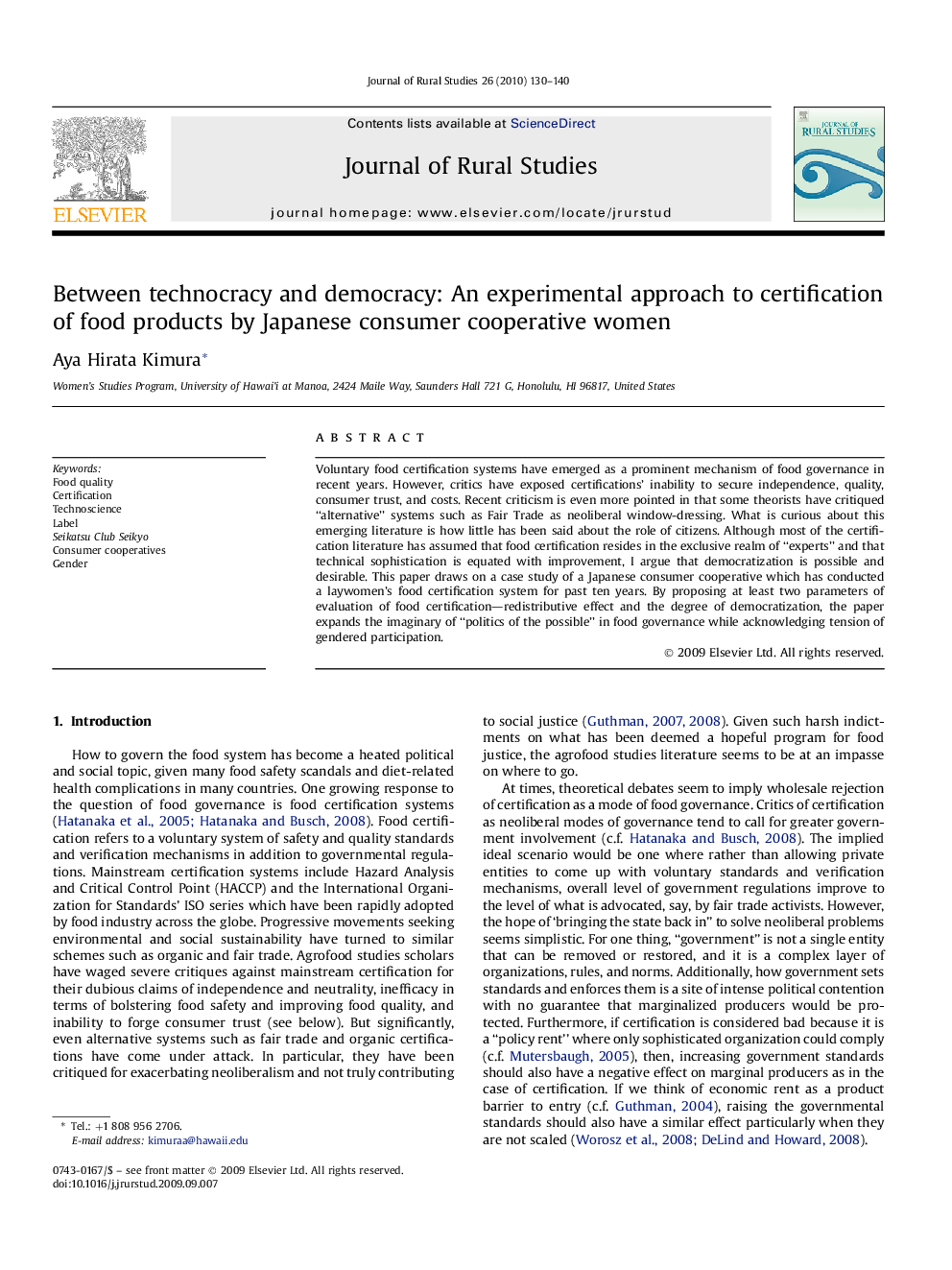| Article ID | Journal | Published Year | Pages | File Type |
|---|---|---|---|---|
| 92566 | Journal of Rural Studies | 2010 | 11 Pages |
Voluntary food certification systems have emerged as a prominent mechanism of food governance in recent years. However, critics have exposed certifications’ inability to secure independence, quality, consumer trust, and costs. Recent criticism is even more pointed in that some theorists have critiqued “alternative” systems such as Fair Trade as neoliberal window-dressing. What is curious about this emerging literature is how little has been said about the role of citizens. Although most of the certification literature has assumed that food certification resides in the exclusive realm of “experts” and that technical sophistication is equated with improvement, I argue that democratization is possible and desirable. This paper draws on a case study of a Japanese consumer cooperative which has conducted a laywomen's food certification system for past ten years. By proposing at least two parameters of evaluation of food certification—redistributive effect and the degree of democratization, the paper expands the imaginary of “politics of the possible” in food governance while acknowledging tension of gendered participation.
